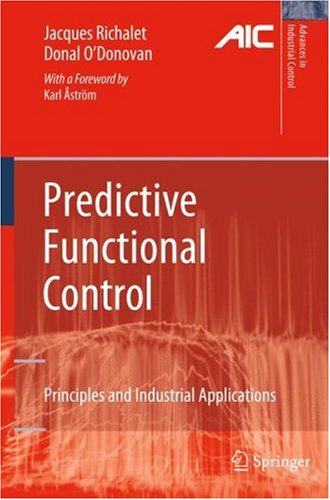

Most ebook files are in PDF format, so you can easily read them using various software such as Foxit Reader or directly on the Google Chrome browser.
Some ebook files are released by publishers in other formats such as .awz, .mobi, .epub, .fb2, etc. You may need to install specific software to read these formats on mobile/PC, such as Calibre.
Please read the tutorial at this link: https://ebookbell.com/faq
We offer FREE conversion to the popular formats you request; however, this may take some time. Therefore, right after payment, please email us, and we will try to provide the service as quickly as possible.
For some exceptional file formats or broken links (if any), please refrain from opening any disputes. Instead, email us first, and we will try to assist within a maximum of 6 hours.
EbookBell Team

0.0
0 reviewsThe demands of the modern economic climate have led to a dramatic increase in the industrial application of model-based predictive control techniques. In fact, apart from PID, predictive control is probably the most popular control approach in use today.
The predictive functional control (PFC) technique was first used to develop a model-based predictive controller that was easy to understand, implement and tune from an instrumentation engineer’s perspective. In the forty years since, there have been thousands of successful applications of PFC controllers in a large and diverse group of industries.
Predictive Functional Control provides the reader with:
• a fundamental understanding of the principles associated with PFC;
• the basic PFC control equations to be implemented in all programmable logic controllers or digital control systems in block programming form; and
• tuning rules and implementation procedures.
In addition, some new features arising from the needs of the process industries are reported along with many examples of industrial applications.
This book is intended for technical staff in the process industries, familiar with classical control techniques, who need to take up the challenges posed by today’s economic environment; engineering graduate students requiring a background in modern control techniques; and industrial managers who require an overview of the PFC technique with a view to assessing its suitability for use in future projects.